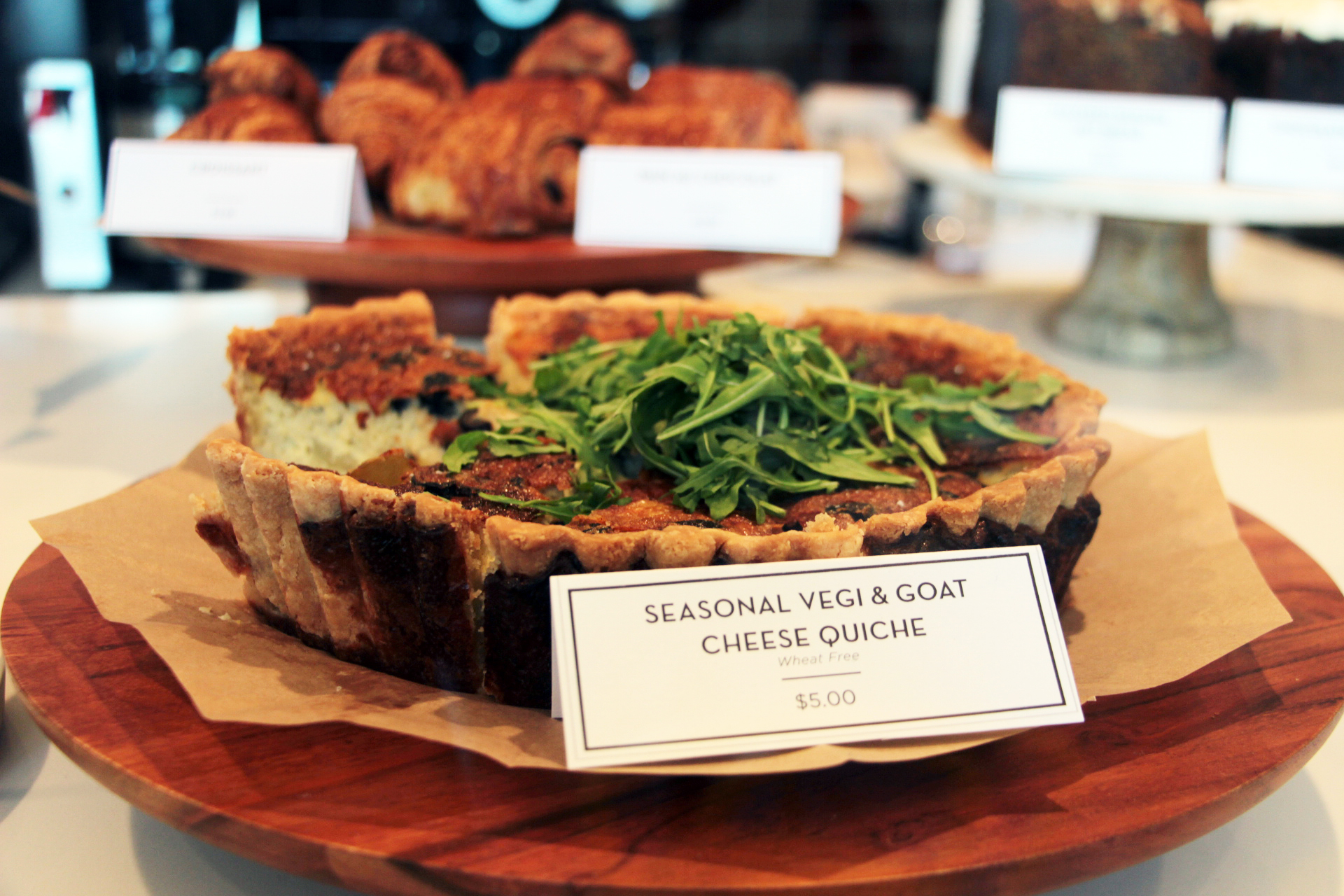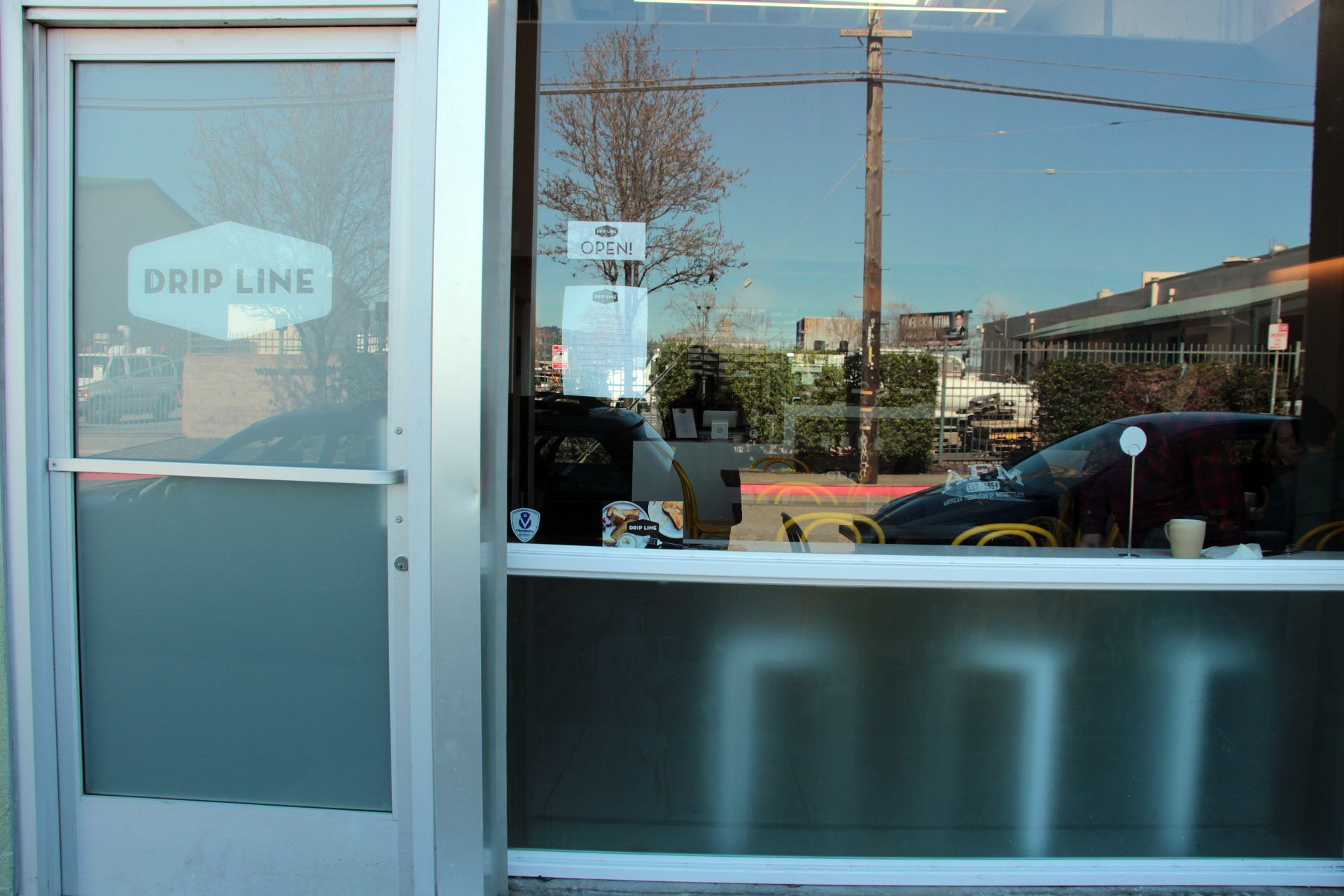
Even looking at a map, I couldn’t quite picture where Drip Line was. A stone’s throw from East Bay MUD (our local public water agency) and just off West Grand, mere blocks from my regular shortcut to the freeway—it’s in a neighborhood I’ve never thought about in terms of food, a hybrid of residential and industrial.
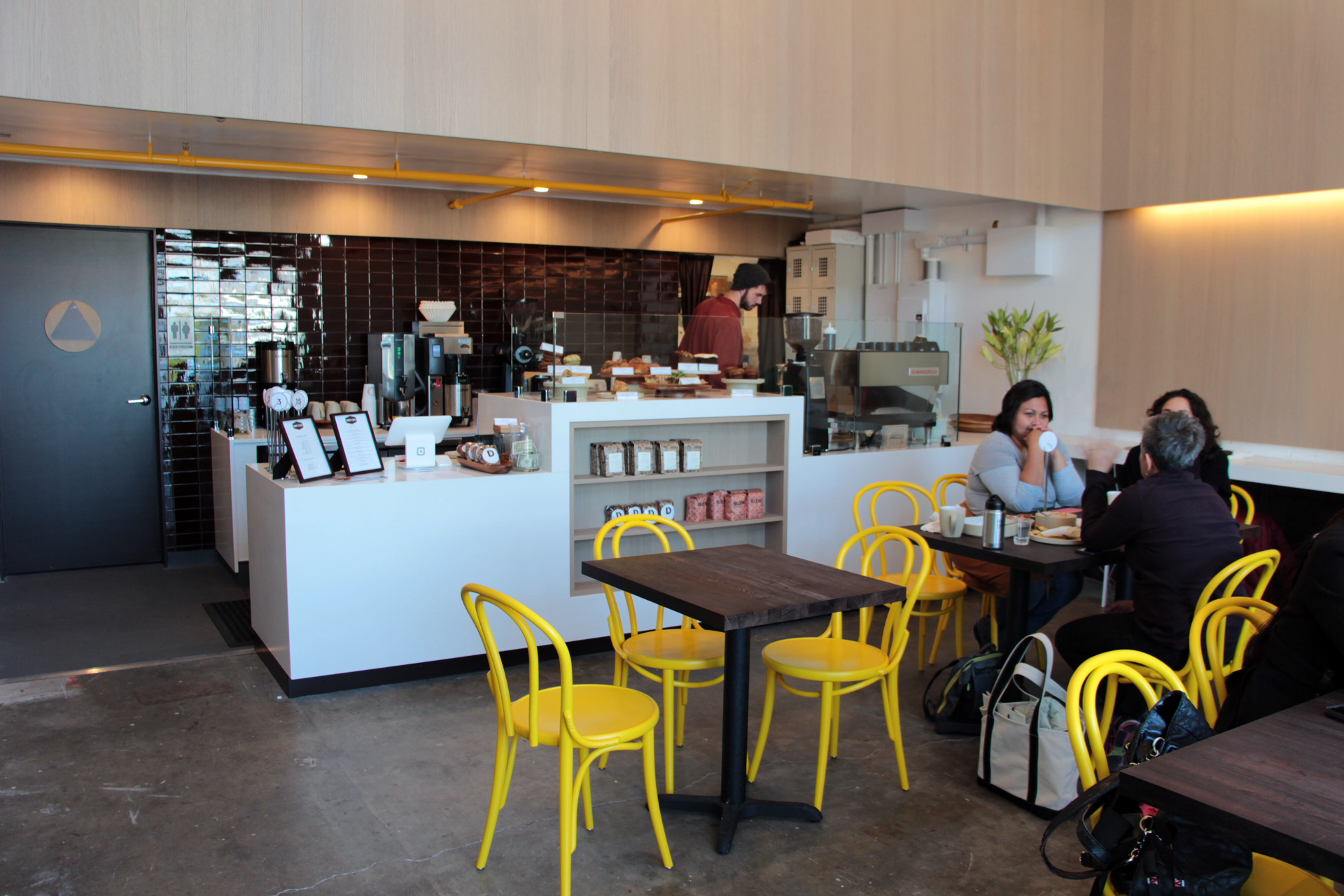
The story begins a few years back when architects Carrie Shores and Josh Larson met chef Nora Dunning while designing Monkey Forest Road, where Dunning was chef. When that restaurant closed, Dunning became Culinary Operations Manager at Blue Bottle Coffee, a big job with a lot of moving parts. The three were reunited when Shores and Larson opened their new design space in West Oakland; they invited Dunning to open a community gathering place and to make it entirely her own. She is now an equity partner in what is one of the most elegant and inviting cafés in Oakland.
And she doesn’t shy away from embracing her model of cooking as “slow.” As she says, “Cooking takes time. Lots and lots of time. And we make everything here from scratch.” That includes the brioche for the breakfast sandwich and the exquisite sambal that enlivens several dishes.
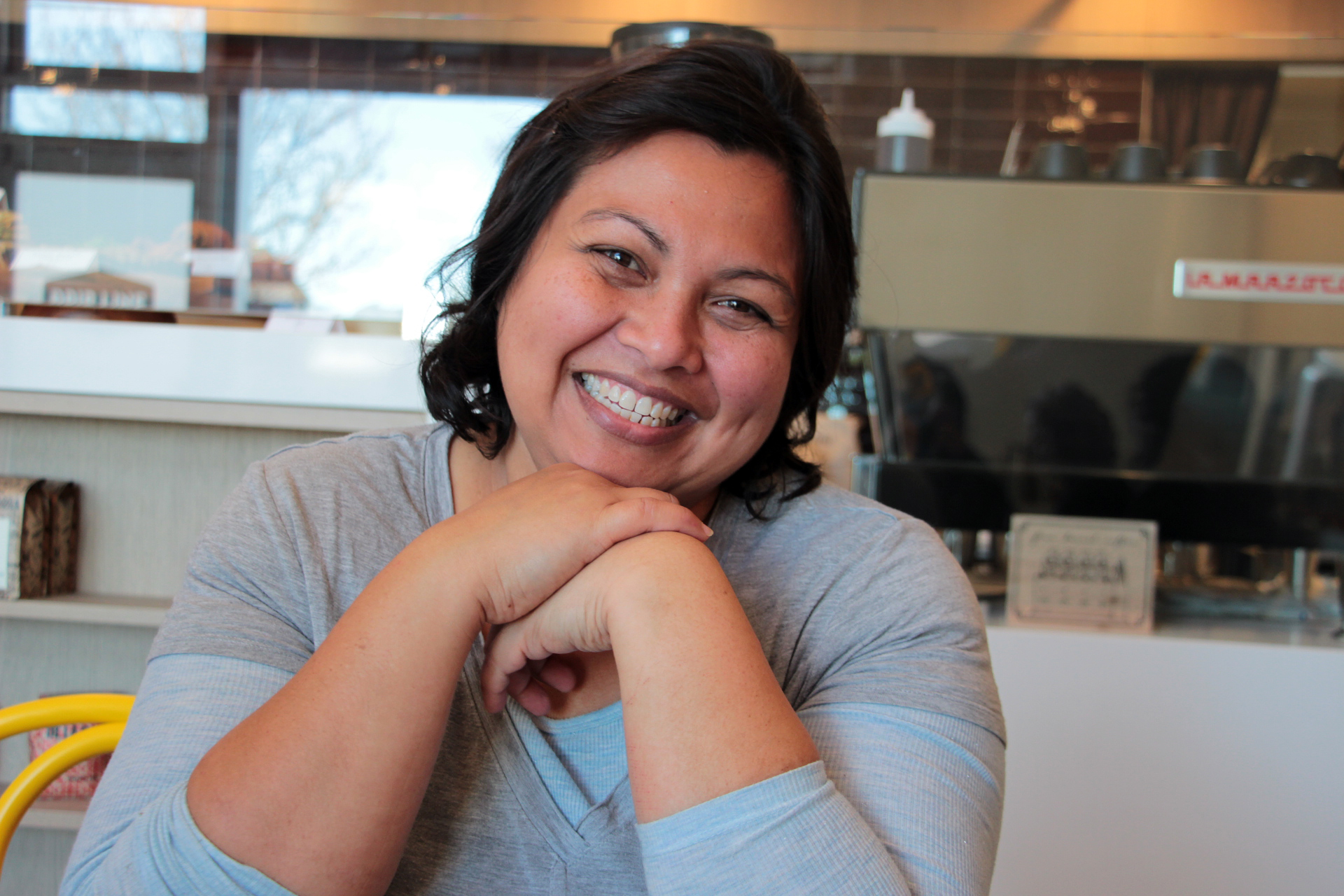
Dunning works with neighbor City Slicker Farms, a non-profit urban farm, to provide some of produce, and she also shops at the Old Oakland and Grand Lake farmers' markets weekly. Kosodate Farm grows the more esoteric ingredients she needs. She cooks all day on Sunday, planning the week’s menu and preparing sauces and stocks.
The restaurant’s name is an architectural term, denoting the paths water creates as it runs off buildings, and the metaphor for the café is to create paths that connect people through lovingly prepared food. Early signs indicate that the metaphor is also a completely literal success.

We were forced to narrow our lunch choices down to three. We started with the koji fried chicken sandwich, served on the aforementioned homemade brioche, dotted with black and white sesame seeds. The chicken is marinated in koji, a fungus used to make soy sauce and sake, deep-fried, and served in perfect ratio to the light, absorbent bun, with crisply sweet fennel slaw.
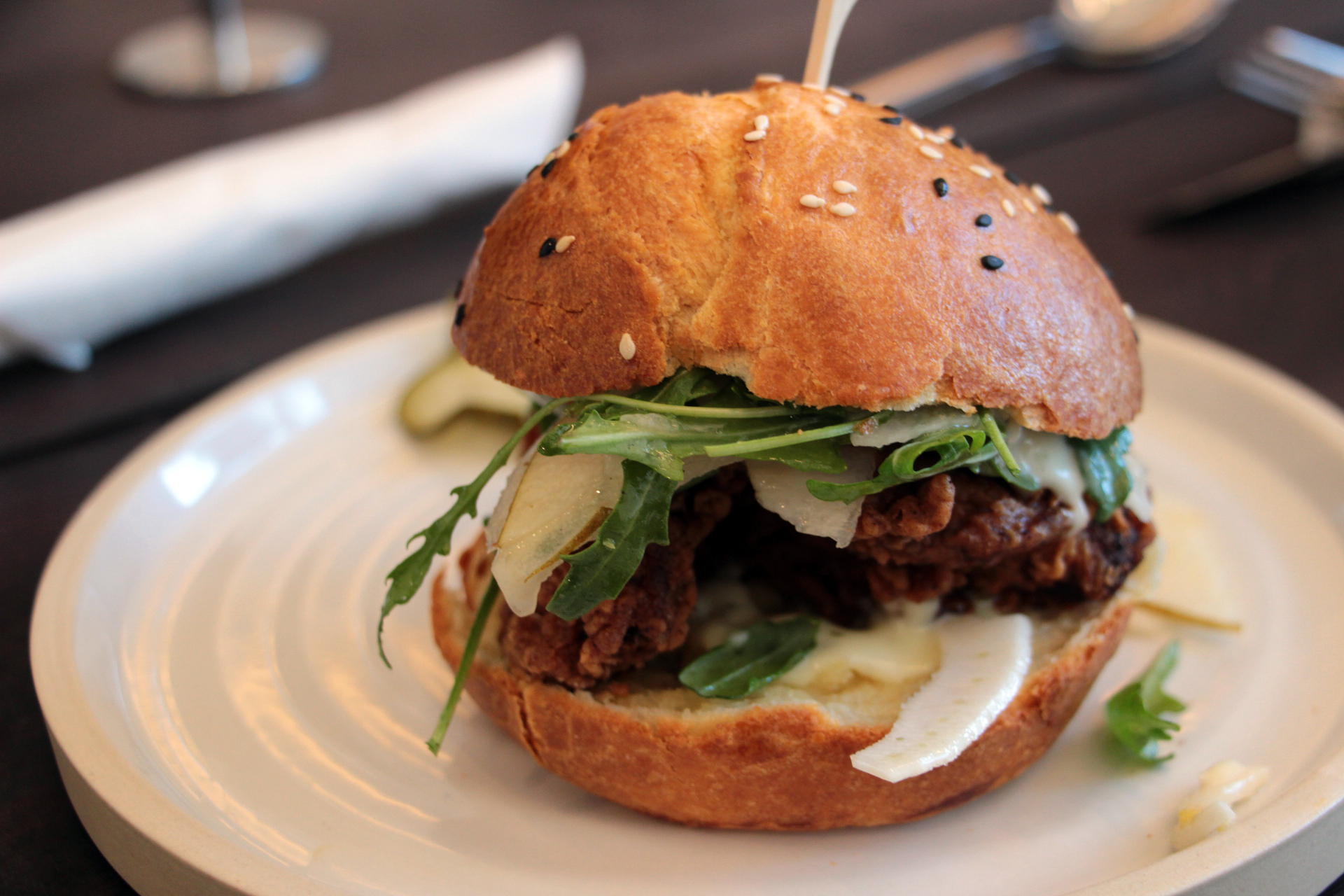
Next up was a terrific rendition of shrimp and grits, with a base of Anson Mills coarse-ground corn grits, fried egg on top, and shrimp smothered in homemade sambal, deep with flavor and sweetly spicy.
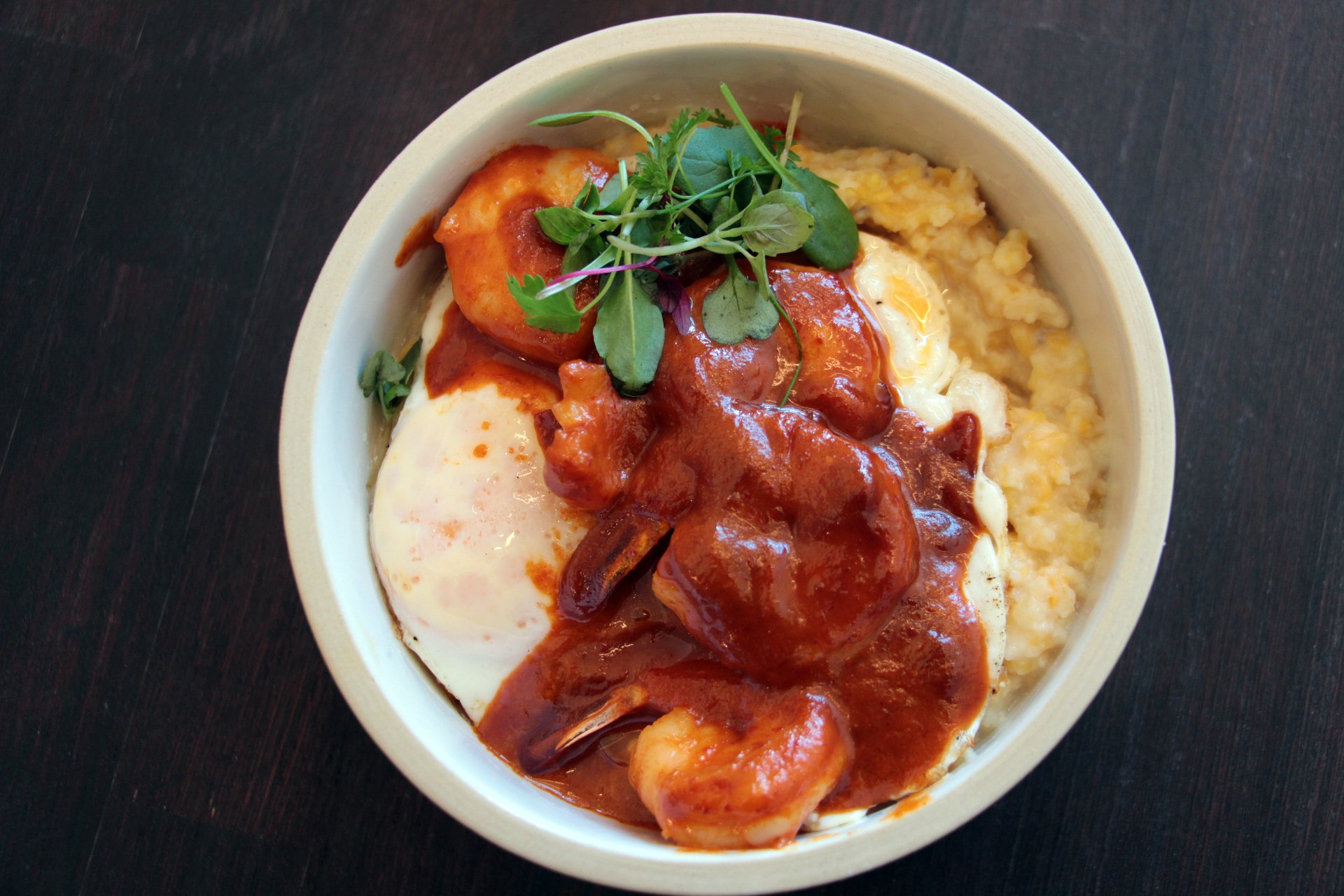
Our grand finale was Gado Gado, a traditional Indonesian comfort food, made here with Chinese broccoli, carrots, quinoa, a poached egg, homemade sweet potato chips, and an addictive peanut-sambal sauce that’s worthy of eating on its own with a spoon.
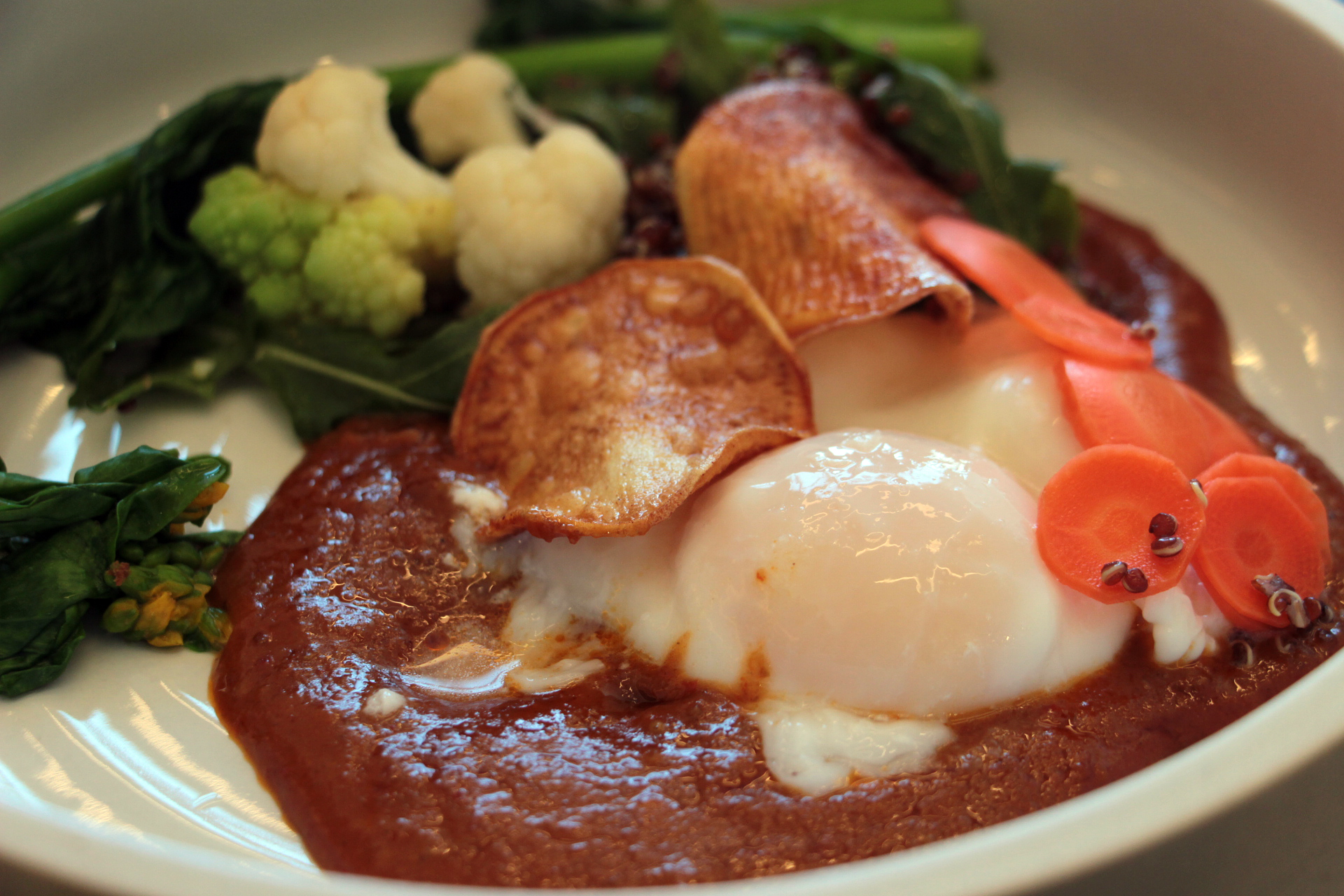
We were too full for dessert, but the chef brought us a taste of her kaya, a coconut custard infused with pandan leaves that she serves with toast and eggs. For me, it’s the Malaysian/Singaporean version of homemade nutella, with coconut and butter in place of chocolate and hazelnuts: light, creamy, downright ethereal in flavor.
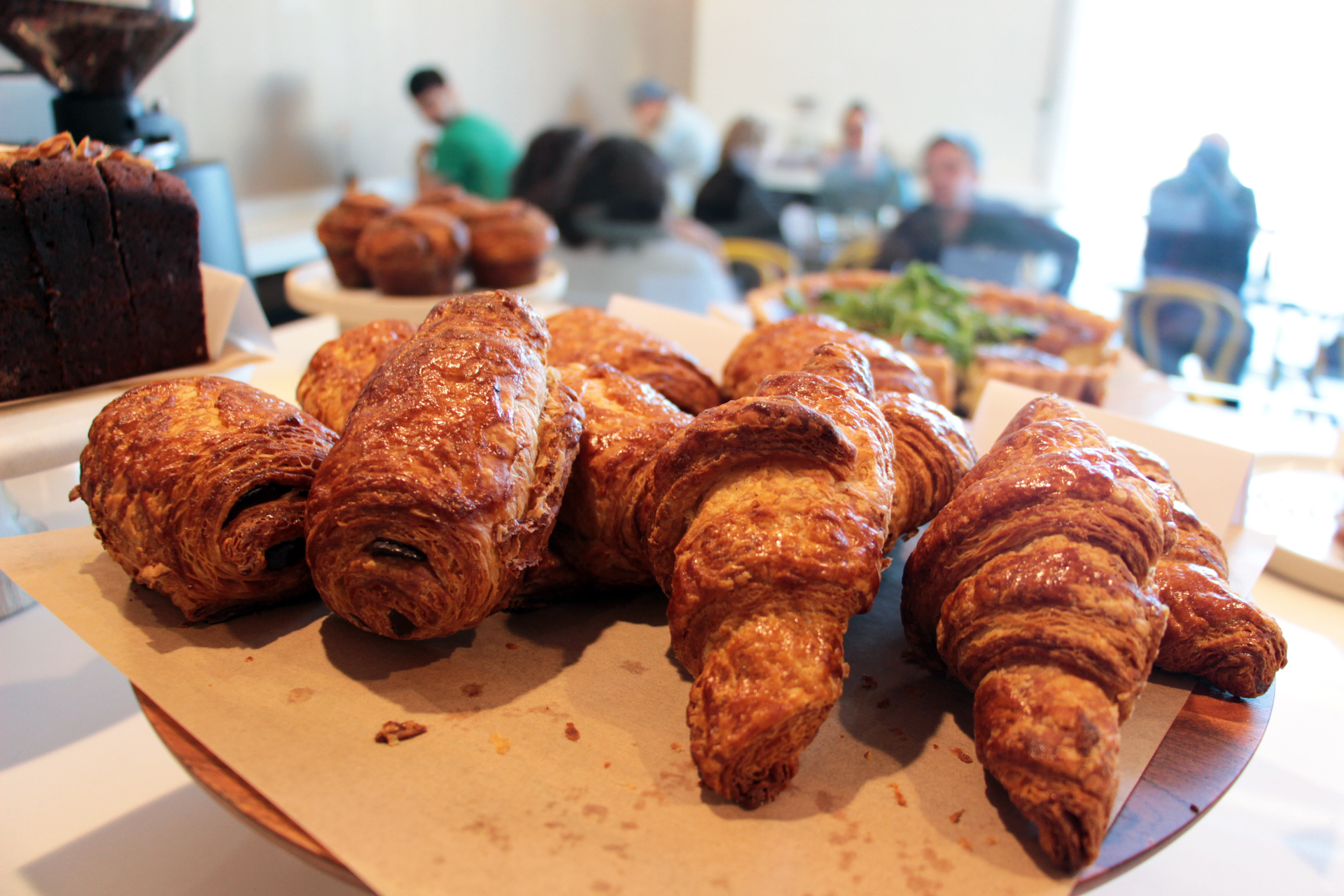
If you don’t have time for a meal, try a homemade pastry: straight-up buttery croissants or matcha-glazed snickedoodles, with nice medium-roasted drip coffee from Four Barrel or an herbal tea with fennel and cardamom, good for digestion. There’s a small selection of food to go as well.
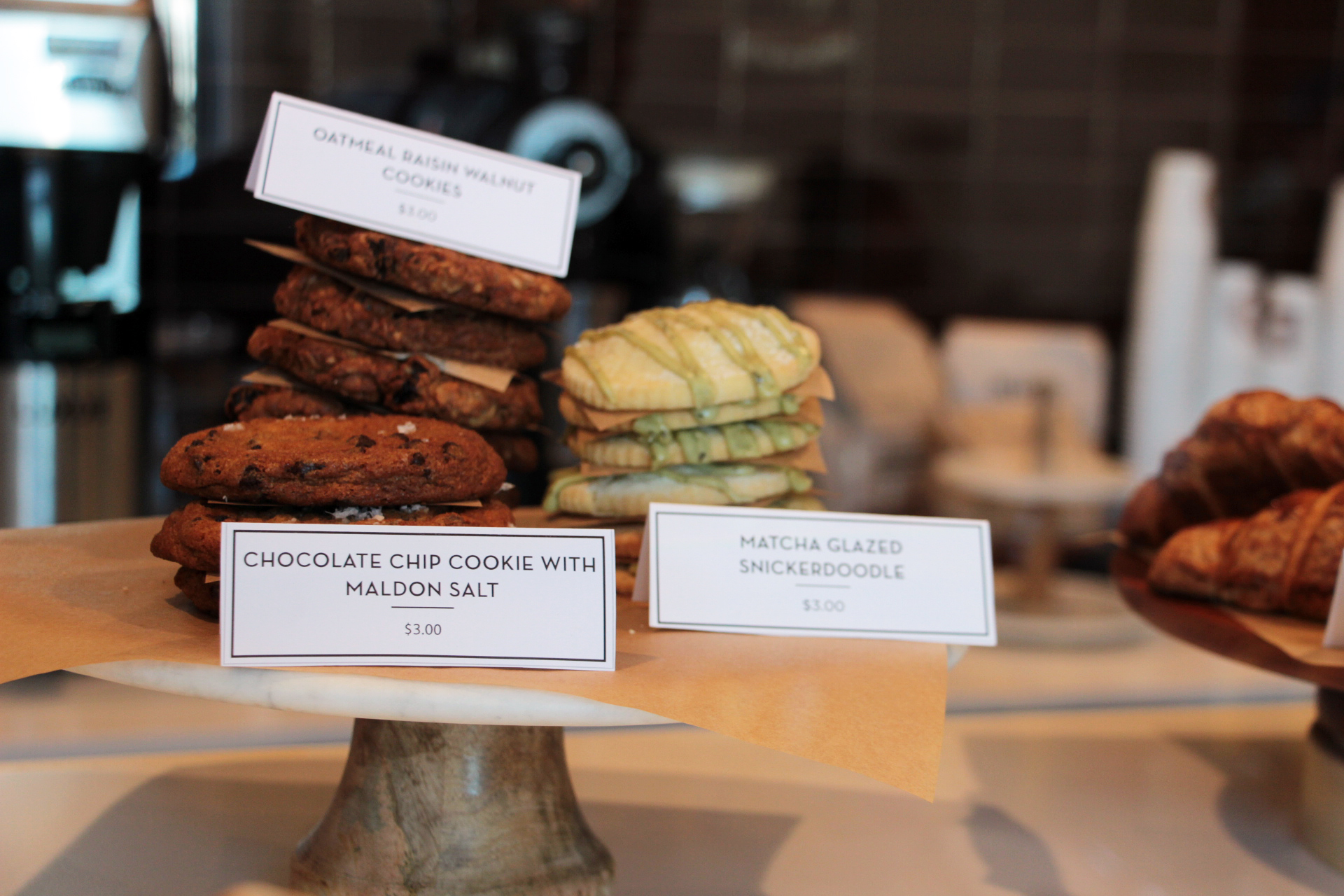
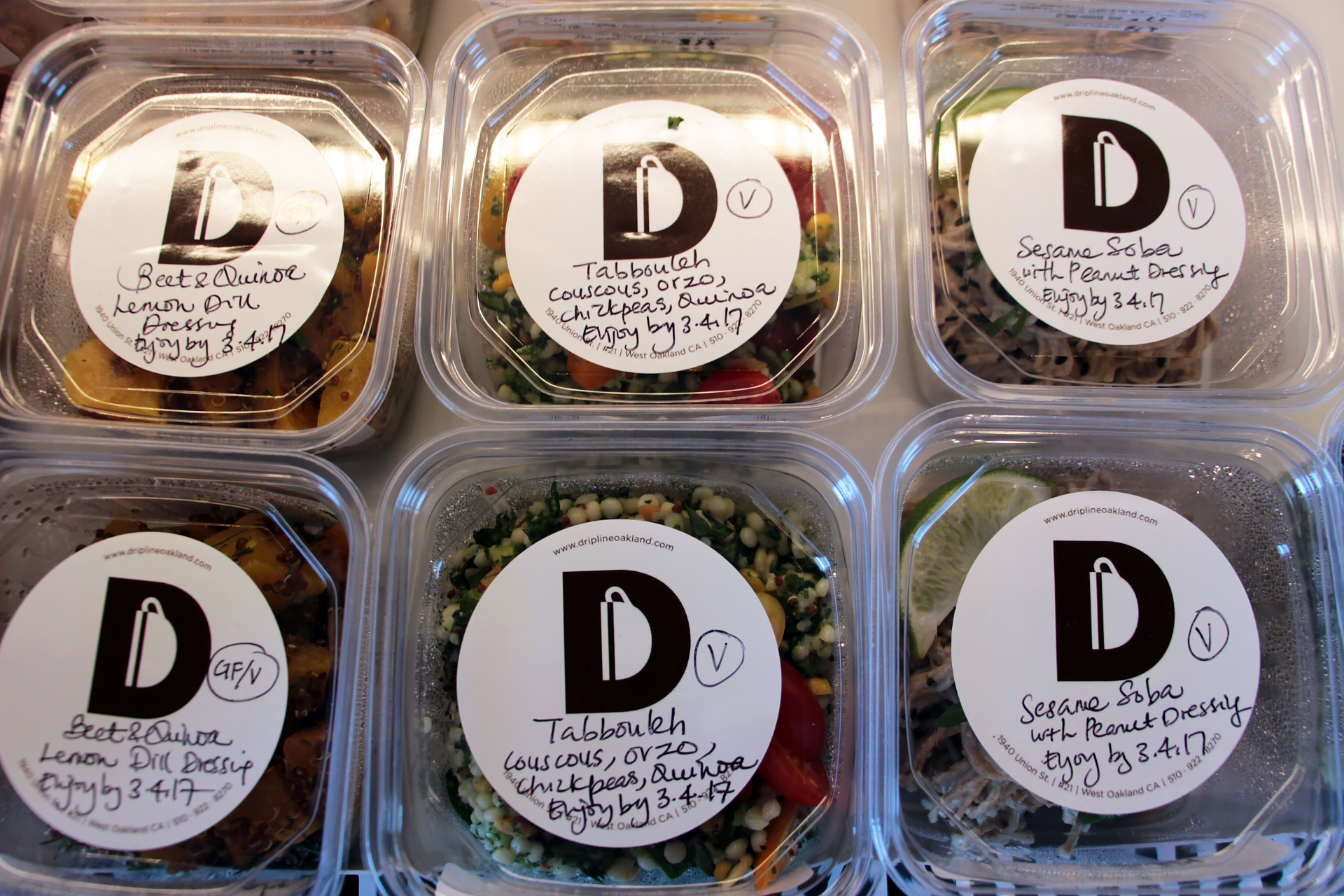
The aesthetically satisfying space, once a cookie factory, is minimalist in design, with a tile backdrop, white and blonde-wood walls, a high ceiling, and unobtrusive lighting with lots of sunlight coming in from the street. Guests sit at wooden, walnut-toned tables with bright yellow chairs. Hodo Soy is in the vicinity and founder and tofu master Minh Tsai, one of Dunning’s culinary inspirations whose Yuba she regularly uses, was enjoying lunch there when we arrived, so word is out.
